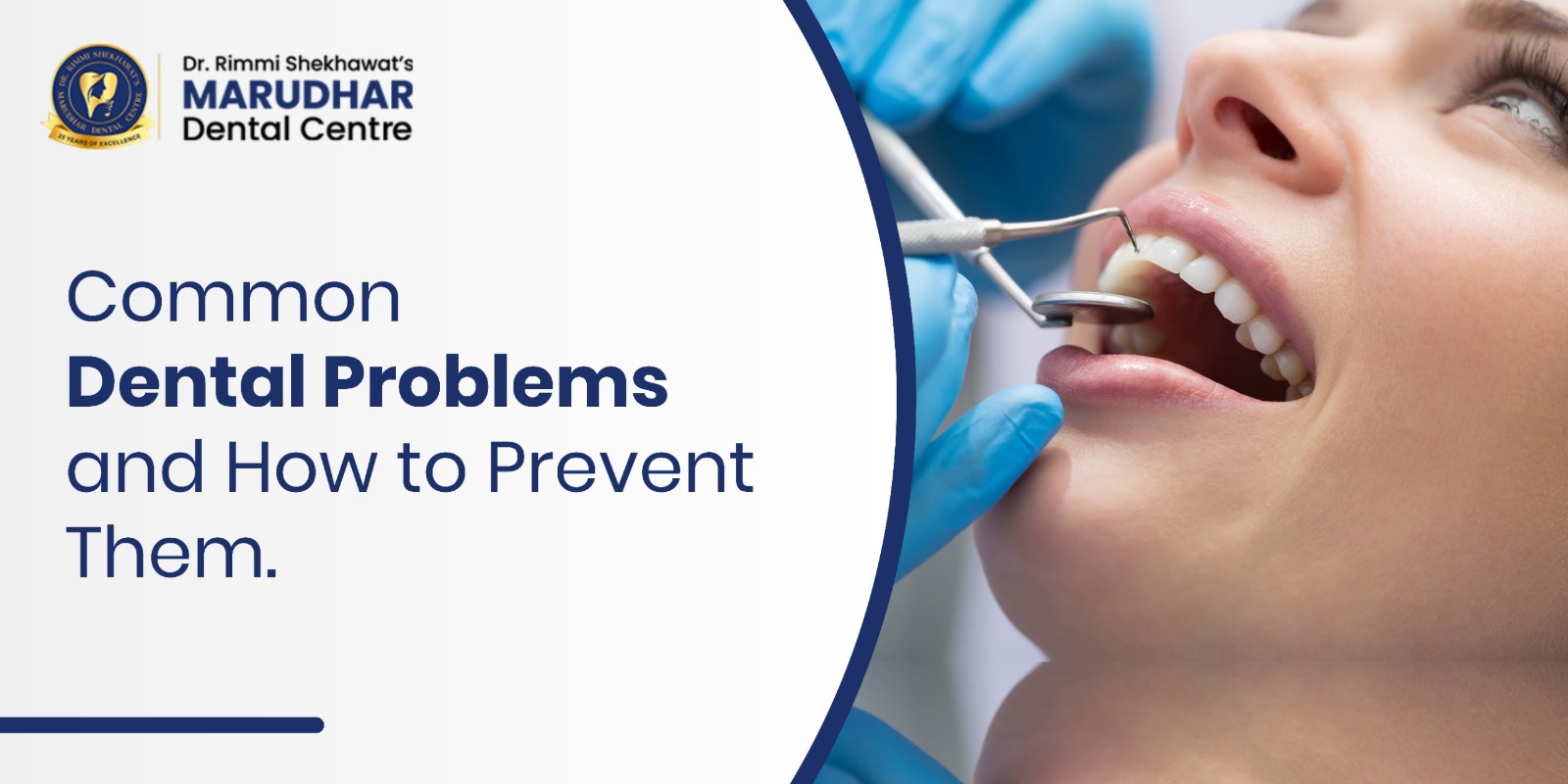You shouldn't only take care of your teeth when they hurt or are uncomfortable. Most dental problems start off small and get worse if you don't take care of them. That's why it's so important to take care of your teeth and see the dentist regularly. If you’re looking for the best dentist in Jaipur, learning about these common problems will help you understand what to avoid and how to protect your smile.
Anyone can have dental problems, even kids, adults, and people who take good care of their teeth. Many problems don't show signs right away, so it's important to be aware of them and take steps to avoid them. Here are the ten most common dental problems that people have, along with practical ways to avoid them so that you can keep your teeth healthy for years to come.
The next step is to know what habits to develop, what foods to stay away from, and when to go to the dentist after you understand these issues. Taking care of yourself a little bit today can save you from having to go through painful and expensive treatments later.And choosing the right dental clinic in Jaipur ensures you get timely guidance and expert care whenever needed.
Tooth Decay (Cavities)
When bacteria that make acid eat away at your enamel, you get cavities. This happens a lot, even to people who brush their teeth often and snack a lot.
How to stop it: Use fluoride toothpaste, brush twice a day, floss once a day, and stay away from sugary snacks that stick to your teeth.
2. Gum Disease (Gingivitis & Periodontitis)
Bleeding, red, or swollen gums are the first signs of gum disease. If you don't pay attention to it, it can make your teeth move or bones break.
To avoid this, brush your teeth along the gum line every day, floss every day, get regular cleanings, and don't smoke.
3. Bad Breath (Halitosis)
If you have bad breath that won't go away, it usually means there is a bigger problem.
Causes: Plaque on the tongue, dry mouth, gum infection, and not brushing well.
To avoid problems, brush your tongue, drink enough water, stay away from tobacco, and get mouth problems treated right away.
4. Tooth Sensitivity
When you eat something hot, cold, or sweet, sensitivity feels like a sudden sharp pain.
Causes: worn enamel, gums that are pulling back, brushing too hard, and teeth that are cracked.
To avoid this, use a toothbrush with soft bristles, switch to a toothpaste for sensitive teeth, and eat fewer acidic foods.
5. Cracked or Chipped Teeth
Cracks can easily happen if you chew on ice, bite hard candy, or grind your teeth.
To avoid this, don't bite down on hard things, wear a mouth guard if you grind your teeth, and get small chips fixed right away.
6. Receding Gums
When your gums pull back, they show the roots of your teeth, which makes them look longer and feel sensitive. Brushing too hard, gum disease, getting older, and teeth that aren't lined up right are all things that can cause this. To avoid problems, brush gently, take care of gum problems right away, and think about getting braces if you need them.
7. Root Infection / Abscess
This is one of the most painful dental problems, and you should never ignore it.
Causes: Cavities that weren't treated, teeth that are cracked, and deep decay.
To avoid this, get fillings early, cleanings on time, and dental care right away if you feel pain or swelling.
8. Enamel Erosion
When acids break down the protective coating on your teeth, this is called enamel erosion. Common causes are soft drinks, sour candies, too much lemon water, and GERD. To avoid this, rinse your mouth after eating acidic foods, don't brush too much, drink water often, and use fluoride mouthwash.
9. Teeth Grinding (Bruxism)
This usually happens while you sleep and can cause headaches, jaw pain, and tooth wear. To avoid this, wear a night guard, cut back on caffeine, manage your stress levels, and see your dentist if the symptoms don't go away.
10. Missing or Loose Teeth
Age isn't the only reason people lose teeth; gum disease or an injury can also cause it. To keep your teeth in line and your ability to chew, you should improve your oral hygiene, treat infections early, and replace missing teeth.
Quick Prevention Checklist
Here’s a simple routine that protects you from most dental issues:
- Brush twice a day for at least 2 minutes
- Floss daily
- Limit sugar and acidic foods
- Drink plenty of water
- Avoid smoking or tobacco
- Visit your dentist every 6 months
- Use mouthwash for extra protection
Final Words
A lot of people have dental problems, but the good news is that most of them can be avoided. A healthy routine and regular check-ups can help keep your teeth and gums from getting really bad. Early detection always makes treatment easier and less painful, whether it's sensitivity, gum problems, or decay.
>Don't wait if you notice any strange symptoms, like pain that doesn't go away, bleeding gums, bad breath, or sensitivity. Getting care on time makes a big difference. A good dentist will show you how to take care of your teeth and gums and keep them healthy.






